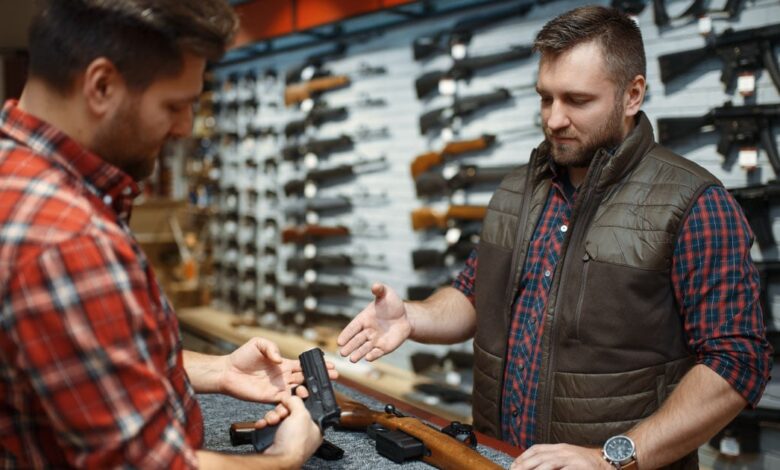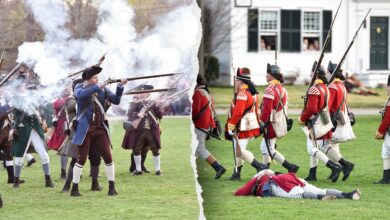Mistakes to Avoid for the First-Time Gun Buyer

The National Shooting Sports Foundation reports that there were 5.4 million first-time gun buyers in 2021. Overall sales of guns reached record-high levels that year, and regardless of the information being pushed out by some media outlets and gun control groups, that number did not drop significantly in 2022 and 2023. Who is buying all those guns? Despite what people like David Chipman and Michael Bloomberg say, it’s not just white, middle-class males. A full 33% of first-time buyers in 2021 were women, and there were significant increases in the number of African American, Hispanic, and Asian Americans buying guns. And that is a very good thing. Not only does everyone have the right to protect themselves from violent criminals, but it also means that greater diversity in gun ownership makes it that much more difficult for politicians to attack our rights.
Unfortunately, first-time gun buyers can be faced with some challenges when buying a gun. By the time I bought my first handgun as a young 19-year-old, I had been shooting for many years. I knew exactly what I wanted and was very happy with my purchase. But many first-time buyers these days are coming from the inner city or suburbs. They did not grow up with guns in their homes and did not have experience shooting and hunting. They are frequently buying handguns for home defense and protection from criminals, often without much guidance from experienced gun owners. That can lead to some mistakes when making their choice, and those mistakes can adversely impact the experience of owning your first gun.
Common First-Time Gun Buyer Mistakes and How to Avoid Them
Fortunately, those mistakes are often easy to avoid with a little forethought and guidance. Although the temptation is to buy a gun as quickly as possible, especially if you are concerned about crime, the extra few days it takes to make a careful selection is worth the time and effort. Here are some of the most common mistakes and how to avoid them.
Failing to Research Types of Guns
There is a large variety of handguns on the market. Some are older designs that have been around for decades simply because they work so well. Others are much newer designs that have become popular because of their perceived advantages or just because people like them. Buyers can choose from single-action (SA), single-action/double-action (DA/SA), double-action-only (DAO), and striker-fired pistols. Each has its own characteristics, advantages, and disadvantages.
There are also many different sizes of handguns, such as full-size, compact, and micro-compact. There are also all metal and guns with polymer lowers, not to mention semiautomatic pistols and revolvers. It behooves the first-time gun buyer to take a couple of afternoons and do some research. There are a lot of reputable websites, gun blogs, and online magazines like USACarry that contain a wealth of accurate information about the different types of guns. Educate yourself about the types and sizes of guns, how they work, and which would suit you best. That way, you will have a basic knowledge when you actually start looking at guns.
Neglecting the Local Gun Store and Range
It’s easy and convenient to buy guns online. It’s also frequently less expensive since you can usually find a better price on a gun online than at a gun shop. Unfortunately, what you gain in convenience or a few dollars off, you lose the opportunity to hold a gun in your hands, or better yet, to shoot it before buying it. You also lose the benefit of the expertise of the people in the shop. While it’s true that some gun store clerks are more salespersons than gun experts, there are many who actually know what they’re talking about.
There’s no substitute for holding a gun in your hand before buying it. The same goes for shooting it. Many ranges rent guns and can allow you to shoot a particular model before laying your money down. A tall friend of mine with large hands heard and read lots of good things about the Sig P365. He determined that since it was such a popular gun with great reviews, it would be perfect for him, so he bought one. But once he held it and shot it, he quickly decided it was too small for his hands and went looking for something a little larger to replace it with.
Relying Too Much on What Other People Recommend
As I mentioned above, it’s smart for the first-time gun buyer to talk to more experienced gunners and get some ideas for guns to look at. But that does not mean you should turn your decision-making process over to someone else.
Some years ago, I was riding to a work activity with a female colleague, and the discussion turned to guns. She related a story about her ex running her off the road and yanking her door open. She had a gun in the console but hadn’t even tried to get to it. Fortunately, he hadn’t harmed her. When I asked why she didn’t go for her gun, she said she wasn’t confident with it because it was painful to shoot, so she never practiced with it. I asked to see it and found she had a Ruger LCP her boyfriend had told her to buy. Rather than finding a gun she liked and would practice with, she just bought what someone else told her to. I told her to sell it and buy a gun that was easier to shoot and to practice with it.
Too many first-time gun buyers buy what someone else tells them they should, especially women. It’s fine to get advice from more experienced gun owners, but you should never just buy what someone tells you would be best for you without checking out some other guns first.
Not Comparing Prices
Buying a gun can be a significant investment, especially when you add in the cost of spare magazines, ammunition, a holster, and whatever mandatory and voluntary training you need. It can be tempting to just shop someplace convenient, especially if you’re a first-time gun buyer, but shop around for the best prices before spending more money than you need to. Gun stores, pawn shops, and online dealers are all in competition with each other for your business. Identify the make and model of the gun you want, then look around to find the best price. You will rarely, if ever, have to pay the MSRP for a gun.
Not Buying Critical Accessories
Another thing first-time gun buyers frequently forget to do is buy important accessories when they buy their guns. New guns usually come in a plastic or cardboard box, sometimes with a cleaning brush and spare magazine, but not usually anything else. There are several other items that a new gun buyer will need.
- Ammunition – It’s important to practice and become proficient with your gun. This requires practice ammunition, which is generally inexpensive FMJ range ammo. It is also wise to have some JHP defensive ammunition to ensure your gun will be as effective as possible in a defensive use situation.
- Spare Magazines – Magazines are the single firearm component most likely to fail, so it is a good idea to have a couple of extras. Spares also save time on the range so you don’t have to reload between each magazine. I always ensure I have at least three magazines for every pistol I own.
- Cleaning Kit – Firearms are machines, and machines need proper maintenance. A cleaning kit that includes solvent, oil, cleaning rod, bore brush, jags (the little tips that hold the cleaning pad), and cleaning pads is a minimum. I find cleaning my guns to be very relaxing, and it is a great way to get to know your firearm and how it goes together.
- Holsters – If you are planning to carry your gun as a concealed weapon, an inside-the-waistband (IWB) holster is often necessary. Even if you are not planning to carry a concealed weapon, a standard outside the waistband (OWB) holster is a good idea if you want to keep your gun on your person around the house or when you are out in the yard.
Overlooking the Paperwork
Gun laws vary wildly across states. In some states, like Idaho, there is no permit required to either buy or carry a gun as a concealed weapon. Open carry is also legal. Individuals can sell guns to each other without state interference, and even buying a gun from an FFL dealer is a quick and straightforward experience.
However, other states, such as Illinois, require a permit (Firearm Owner’s Identification “FOID”) card just to purchase and own a gun. Another permit is required for concealed carry, and open carry is illegal. Background checks are required for all gun sales, even between private citizens, and there is a mandatory waiting period. You must also have a FOID to purchase ammunition.
Before going out to buy a gun, first-time gun buyers should ensure they understand the laws in their state and have all the appropriate permits and forms of ID required to complete the purchase. Gun laws can be found on all state government websites. Many organizations including USA Carry have pages on their websites that provide easy reference guides to gun laws in each state.
If You Are Helping Someone Buy Their First Gun
If you are helping a friend or relative to buy their first gun, keep all these points in mind. Understand what they want and need, not what YOU like the most. Don’t automatically push them to buy your favorite gun. Instead, talk with them and help them discover what will work best for them. If possible, take them to a range and let them shoot some of your guns or rental guns so they can decide for themselves what works best for them. Beware of recommending “women’s guns” just because they are small or light. Remember what happened to my female colleague because she bought the gun someone else told her she should. A gun is a very personal thing that should fit the owner both physically and psychologically. If it doesn’t, they will be much more likely to leave it home where it will not be available if and when they need it. Buying your first gun is an exciting experience that is made even better with some advance preparation and planning.
Read the full article here






